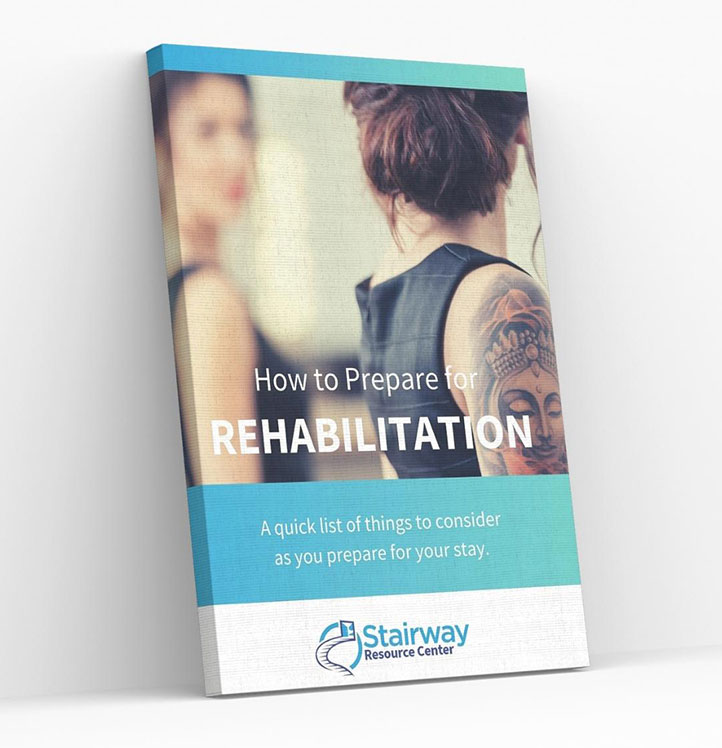We Accept Most Insurance. Please Call to Verify Yours.






![]()







Stairway Resource Center in Southern California is a beacon of hope for individuals struggling with addiction and co-occurring mental health disorders. Our treatment center is a structured, evidence-based approach rooted in the 12-Step recovery model. We provide compassionate, comprehensive treatment to help our clients achieve long-term sobriety. Our mission is to offer personalized, holistic care that addresses the unique needs of each patient, whether they are battling drug and alcohol addiction, mental health challenges, or both. We offer a specialized dual diagnosis treatment program that treats addiction and mental health disorders simultaneously. This only ensures a comprehensive path to recovery.
At Stairway Resource Center, our treatment facility recognizes that addiction and mental health disorders are deeply intertwined. Successful treatment must address both aspects simultaneously. Our programs are designed to support each patient on their recovery journey, providing them with the tools and support they need at every stage of treatment.
We offer a range of services, from intensive outpatient programs (IOP) and outpatient programs (OP) to sober living accommodations. These programs confirm that patients receive the right level of care based on their individual needs. Our programs are built on a spiritual foundation that promotes growth, healing, and connection. Each patient feels supported both mentally and emotionally throughout their recovery process.
Our outpatient programs, including intensive outpatient and traditional outpatient, provide structured, evidence-based support for individuals managing treatment alongside daily responsibilities. These flexible programs allow clients to engage in recovery while continuing with work, school, or family commitments. Treatment can seamlessly integrate into their lives. Whether stepping down from a higher level of care or starting their recovery journey, our outpatient services deliver comprehensive support to foster lasting change.
At Stairway Resource Center, we create individualized treatment plans for every outpatient client. Our outpatient treatment approach addresses the unique challenges faced by individuals in recovery. It also helps manage the demands of everyday life. Whether you or a loved one is stepping down from a higher level of care or seeking support for the first time, our clinical and holistic therapies cater to each stage of recovery.


Each patient at Stairway Resource Center receives an individualized treatment plan tailored to their treatment requirements. This helps promote a more positive well-being. We understand that recovery is not a one-size-fits-all process. Our team carefully designs each plan by providing all levels of care. At Stairway, we combine unique approaches that address both our clients’ minds and bodies. Once an individual finishes their detox program, they are welcome to explore our rehab center for drug or alcohol rehab services. We also provide inpatient treatment or outpatient services to accommodate our clients’ specific needs.
Our treatment philosophy is grounded in the 12-Step model, which emphasizes personal accountability, community connection, and spiritual growth. This structured approach has been especially effective for patients who have experienced chronic relapses or have found limited success in other treatment programs.
At Stairway Resource Center, we specialize in treating individuals with both substance use disorder (SUD) and co-occurring mental health conditions. We specialize in treating depression, anxiety, post-traumatic stress disorder (PTSD), obsessive-compulsive disorder (OCD), and bipolar disorder. Our true dual diagnosis program simultaneously addresses these conditions. Therefore, both addiction and mental health challenges are treated with equal importance.
The clinical team at our recovery center utilizes a range of evidence-based therapies to address mental health disorders, including cognitive-behavioral therapy (CBT), dialectical behavior therapy (DBT), and trauma-informed care. We also offer advanced therapy sessions such as eye movement desensitization and reprocessing (EMDR), transcranial magnetic stimulation (TMS), and brainspotting. These treatment options are highly effective for patients who have not responded well to traditional therapies.
At Stairway Resource Center, we believe that treating alcohol and drug addiction or poor mental health requires a holistic approach. This ensures that the individual is treated as a whole — mind, body, and spirit. In addition to traditional clinical therapies, we offer alternative therapies. Treatment modalities include mindfulness practices, meditation, art therapy, and more. These holistic methods support emotional and physical healing. This helps our patients reconnect with themselves and build the strength they need for long-term recovery.
Our evidence-based therapies include CBT, DBT, motivational interviewing, and trauma-informed care. We regularly revise and update treatment plans to ensure that they meet each patient’s evolving needs. Our team addresses both addiction and mental health concerns at the same time.
A key focus of our programs is relapse prevention. We equip our patients with the tools and strategies they need. This is done to identify triggers, manage cravings, and build a strong relapse prevention plan. For those who have experienced multiple relapses, we offer specialized care. Our care goes beyond traditional treatment methods to address the underlying issues that contribute to chronic relapse.
The clinical team at Stairway Resource Center utilizes the Gorski Relapse Prevention Model. It is a widely respected approach that helps patients recognize the stages of relapse and take proactive steps to prevent it from happening. This model, combined with other evidence-based strategies, empowers our patients to build a life in recovery that is resilient and sustainable.
Our dual diagnosis program is designed to treat patients with severe mental health conditions. We treat medication-resistant depression, bipolar disorder, and anxiety disorders. Our clinical team offers cutting-edge treatments such as transcranial magnetic stimulation (TMS) and brainspotting. These are particularly effective treatments for patients who have not responded to traditional therapies.
Our psychiatric team works closely with each patient to manage mental health symptoms with mental health treatment. This is done to make sure that they are receiving the appropriate medication and therapeutic interventions. By addressing behavioral health disorders alongside addiction, we provide a more comprehensive and effective approach to recovery.
In addition to treating addiction and common mental health conditions, Stairway Resource Center is equipped to handle challenging cases, including severe personality disorders and complex trauma. Our clinical team conducts thorough assessments to develop a personalized treatment plan. This helps address the unique needs of each patient. We strive to deliver the support and care they need to promote stabilization. This is done before engaging in deeper trauma work.
At Stairway Resource Center in Santa Monica, we believe recovery extends beyond individual treatment. Our robust alumni network and community outreach programs provide essential support and connection for outpatient clients. Through regular meetings and volunteer opportunities, we help patients build a supportive network that fosters long-term recovery.
Our team offers a robust alumni network, regular community outreach programs, and family involvement. The team at Stairway Resource Center strives to ensure that each patient has the support they need both during and after treatment. Our alumni are invited to participate in weekly meetings, sober events, and volunteer activities. Sober activities include quarterly Skid Row homeless drives that help them build lasting connections and support long-term recovery.
At Stairway Resource Center, we believe that recovery should be accessible to everyone, regardless of their background or circumstances. We are committed to offering treatment to a wide demographic, from homeless individuals to professionals like lawyers and doctors. Our addiction treatment program addresses both addiction and co-occurring disorders to promote overall wellness. The team at our addiction treatment center strives to provide an array of substance abuse treatment services for an inclusive approach. This secures access for everyone who seeks help at our facility, and ensures they are treated with dignity, respect, and compassion to achieve addiction recovery. Treatment options include:
If you’re ready to begin your journey to recovery, Stairway Resource Center is here to help. Our compassionate, expert team is dedicated to helping individuals overcome addiction and mental health challenges. Contact us today at (888) 450-2701 to learn more about our programs and how we can support your path to lasting recovery.


This free guide contains a list of things to consider as you prepare for your stay.
We’re here to provide help and support along the way!